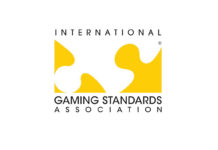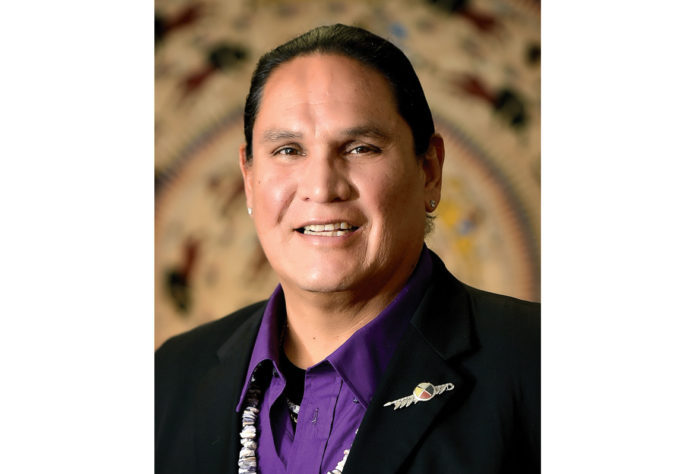by Ernest L. Stevens, Jr.
Internet and mobile gaming – in particular online sports betting – has been the fastest-growing aspect of the national gaming market since the Supreme Court’s 2018 Murphy decision, which struck down the federal prohibition against sports betting. Since 2018, thirty-eight states and the District of Columbia have legalized sports betting within their borders, and a handful of states are actively considering legislation to legalize sports betting. Twenty-nine of these states and the District of Columbia have also approved online sports betting in their jurisdictions.
The Indian gaming industry is likewise evolving to address this changing landscape. The conversation and analysis about sports betting’s impact on Indian gaming will continue at our Annual Tradeshow and Convention in Anaheim, April 8-11.
Since 2018, dozens of tribal governments have added sports betting as an offering at their brick-and-mortar operations. Tribal governments have taken different approaches to mobile gaming. Some tribes are participating in state-run models outside of IGRA. Others are working through the compacting process to implement either geo-fenced mobile gaming or negotiating a jurisdictional arrangement to permit the tribe to accept online wagers that originate off-reservation, but are deemed accepted where the server is located on Indian lands.
The question of whether tribes can accept online sports wagers from throughout a state has been an ongoing legal and regulatory debate. Tribal governments are leading this discussion, empowered in part by IGRA and the compacts that tribes have carefully negotiated over the past three and half decades.
Opponents and competitors of Indian gaming argue that IGRA restricts Indian gaming entirely to Indian lands. They essentially argue that IGRA froze Indian gaming in place in 1988, when the internet was relatively unknown and not publicly available. These incorrect interpretations of IGRA leave no room for tribes to participate in the emerging online sports betting market, much to the benefit of commercial gaming.
This view ignores the fact that for decades many tribal-state gaming compacts have included provisions for off-track betting where the races take place off Indian lands, but the wagers are accepted at the tribal casino on the reservation.
More importantly, this limiting view of IGRA overlooks the very text and intent of the Act. IGRA’s compacting provisions clearly permit tribes and states to negotiate compact provisions that allocate jurisdiction to either sovereign as long as the provision is directly related to the regulation or enforcement of gaming activities.
The federal government has weighed in on this subject both in legal briefs and through proposed and now final regulations governing IGRA’s compacting process. On February 21, 2024, the U.S. Department of the Interior issued a final rule that updates the Department’s Part 293 regulations.
The Department’s final rule expressly answers the question: ‘‘May a compact or amendment include provisions addressing statewide remote wagering or internet gaming?’’ Part 293.26 codifies the Department’s positions that the negotiation between a tribe and state over statewide remote wagering or iGaming falls under IGRA’s broad categories of criminal and civil jurisdiction and is inherently directly related to the operation of gaming.
As a result, Interior regulations acknowledge that tribes can work with states through the compacting process to clarify that tribal gaming operations can accept mobile wagers from outside of Indian lands where the server is located on Indian lands and where the arrangement is reflected in state law and the compact. This view reflects the modern understanding of how to regulate online gaming. Multiple states have enacted laws that deem a bet to have occurred at the location of the servers, regardless of where the player is physically located in the state.
The Interior Department’s Part 293 final rule is the first update to the Indian Gaming Regulatory Act compacting regulations since 2008. In addition to addressing the question of remote wagering, the final rule codifies several decades of Departmental policy developed through decision letters and federal case law, clarifying that tribal-state compact provisions must be “directly related” or “directly connected” to a tribe’s operation of Class III gaming activities. The rule indicates that inclusion of compact provisions that go beyond the limits listed “may be considered evidence of a violation of IGRA,” which would require the Department to disapprove the compact.
The Indian gaming industry remains one of the most significant sources of tribal economic development in Indian Country. It has been said many times before that IGRA is not perfect. However, tribes nationwide have embraced the benefits embedded in IGRA. The forward-looking law, at its core, is grounded in respect for tribal sovereignty and provides the flexibility to empower tribal government gaming operations to adapt and grow with modern advances in the industry.
Government officials and tribal leaders will attend our Anaheim tradeshow to discuss these issues further. In addition, the NCAI-IGA Taskforce is collecting tribal leader comments on sports betting and many other tribal governmental issues to present to the Biden Administration prior to this year’s 2024 elections.
Please join us in Anaheim April 8-11. Visit www.indiangamingtradeshow.com for a full agenda of sports betting sessions and membership meetings.
Ernest L. Stevens, Jr. is Chairman of the Indian Gaming Association. He can be reached by calling (202) 546-7711 or visit www.indiangaming.org.
















































